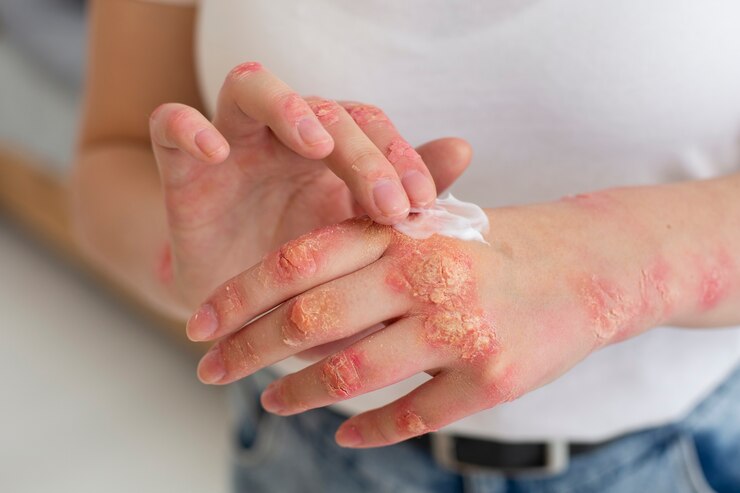A Practical Guide to Understanding and Managing Eczema Flare-Ups
Eczema is a common skin condition affecting millions worldwide. It leads to dry, itchy, and inflamed skin, making life uncomfortable for those dealing with it. While more common in children, eczema can occur at any age. Though the exact cause isn’t fully understood, both genetic and environmental factors are known to trigger eczema flare-ups. In this guide, we’ll explore what eczema is, its causes, and how you can effectively manage its sympto
What is Eczema?
Eczema, also known as atopic dermatitis, is a chronic condition where the skin becomes inflamed, causing dryness, itching, and irritation. It can appear anywhere on the body but is most common on the face, hands, and behind the knees. Eczema varies in severity, with some people experiencing mild symptoms and others dealing with painful flare-ups.
There are different types of eczema, with atopic dermatitis being the most common. Other forms include contact dermatitis, triggered by irritants, and dyshidrotic eczema, which causes blisters on the hands and feet.

What Causes Eczema?
The exact cause of eczema is still uncertain, but researchers believe it results from a combination of genetic and environmental factors. People with a family history of eczema, asthma, or allergies are more likely to develop it. A primary factor is a malfunction in the skin’s protective barrier, which leads to moisture loss and exposure to irritants.
Environmental triggers like harsh soaps, certain fabrics, and weather changes can worsen the condition. Allergens, such as pollen and pet dander, along with stress, are also significant contributors to eczema flare-ups. Additionally, those with eczema may have an overactive immune system, which reacts strongly to these triggers, causing redness and itching.
Symptoms of Eczema
Eczema symptoms vary from person to person but typically include dry, itchy skin. The skin may also become red, swollen, or develop cracked patches. Some people experience periods where their symptoms worsen, known as flare-ups, followed by times where their skin improves. The itching can be intense, leading to further irritation and even infections if scratched frequently.
Managing and Treating Eczema
Though there’s no cure for eczema, there are ways to manage it effectively. The primary goal is to minimize flare-ups and keep the skin moisturized. Here’s how:
Moisturize regularly with thick creams or ointments, especially after bathing, to lock in moisture. Make sure to use fragrance-free and gentle products to avoid irritation.
For flare-ups, topical treatments like hydrocortisone creams help reduce inflammation. In more severe cases, stronger prescription medications may be required.
Lifestyle adjustments are essential: wear soft fabrics like cotton, avoid extreme temperatures, and use a humidifier during dry weather.
Identify and avoid triggers such as allergens, stress, and certain foods that might worsen symptoms.
Natural remedies like colloidal oatmeal baths and coconut oil can soothe the skin, though it’s best to consult with a healthcare provider before trying new treatments.
By combining these strategies and staying mindful of your triggers, eczema symptoms can be managed effectively, improving your quality of life.
Have you tried everything for your eczema without success?
Experience fast relief with our steroid-free, natural eczema solutions.